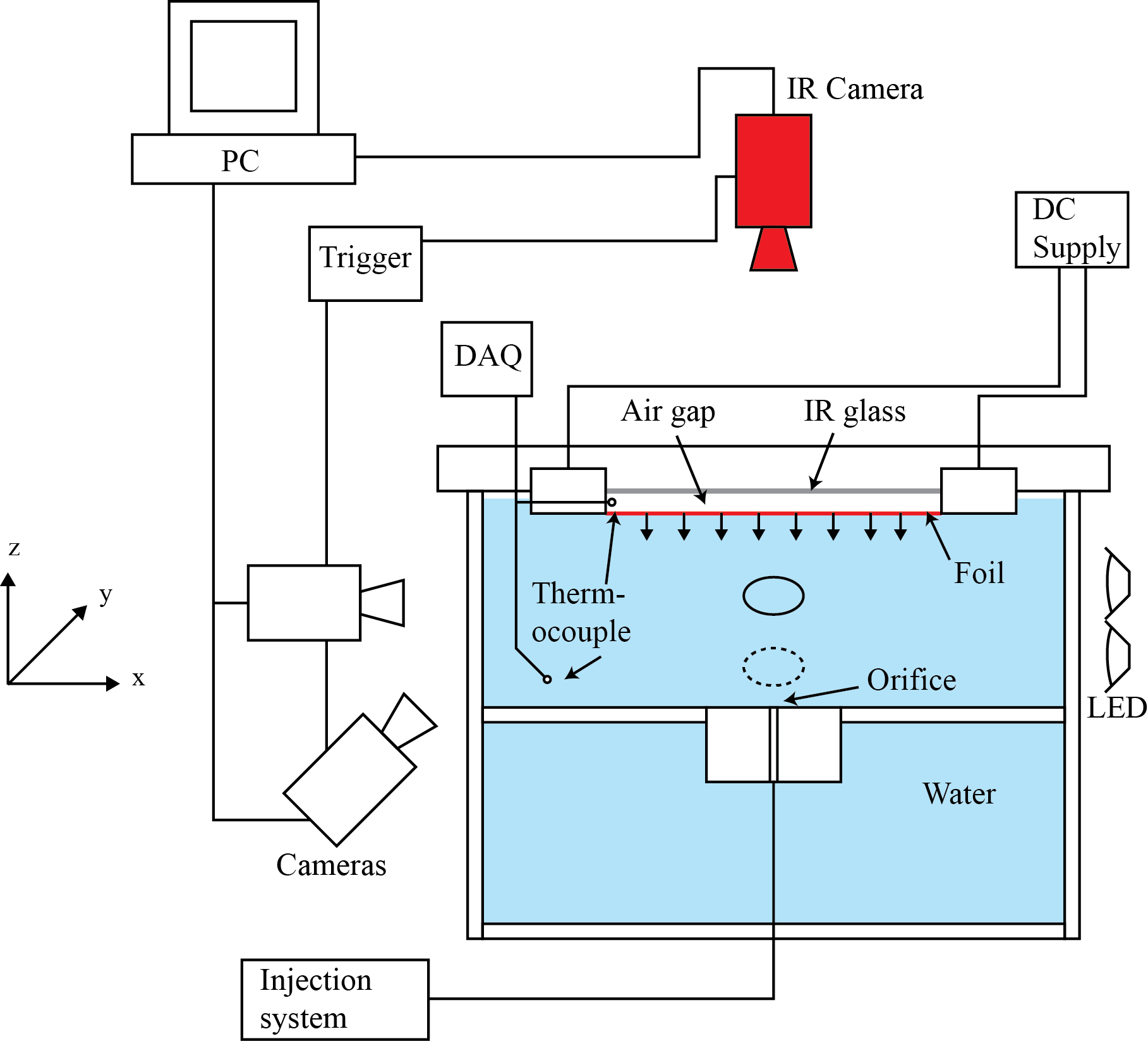Bubble impingement and the mechanisms of heat transfer enhancement
Project coordinator(s)Prof. Darina Murray
Email: [javascript protected email address]
Tel: +353 1 896 1129
Dr. Tony Robinson
Email: [javascript protected email address]
Tel: +353 1 896 3919
Mr. David B. Donoghue
DescriptionTwo-phase flow has become a vital part of heat transfer enhancement. Developments in two-phase flow technology have allowed for ever more efficient heat exchangers, chemical reactors and other simple cooling devices. Bubbly flows are not only confined to heat exchangers, with bubbles being used for a variety of industrial applications such as froth flotation water treatment processes and the production of aluminum foam for example. The phenomenon of heat transfer enhancement resulting from bubble motion near a heated wall is well established, with numerous studies being performed over the years, with particular attention being focused on both sliding and rising bubble's.
The objective of this study is to experimentally investigate the coupled convective heat transfer and bubble motion due to the effect of a single air bubble rising through distilled water and impacting and bouncing on a heated horizontal surface. Specifically, the time varying convective heat flux distribution is quantified for a single bubble impact and bouncing event and the results explained in terms of the bubble dynamics. The bubble motion is captured with two high-speed cameras mounted perpendicular to each other, with a high-speed IR camera mounted above the horizontal surface, which captures the surface temperature variation. All three cameras are synchronized at a frequency of 1000 Hz. Secondary fluid motion due the bubble's wake is investigated by means of combined high speed PIV (Particle Image Velocimetry) and thermal imaging.


Science Foundation Ireland (Research Frontiers Programme), School of Engineering

